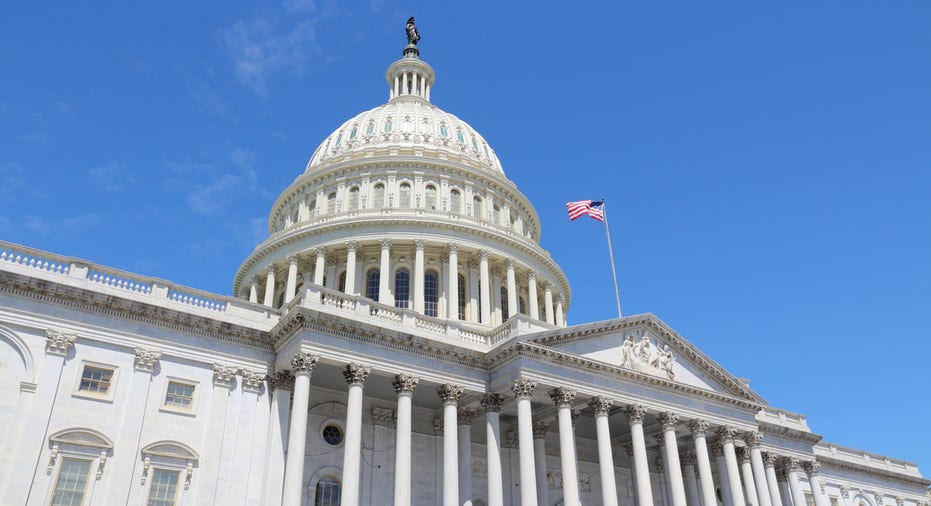Schumer calls on Biden to extend student loan payment pause amid omicron uncertainty
Federal student loan borrowers should expect to resume student loan repayment in February 2022

With the federal moratorium on student loan payments set to expire at the end of January 2022, Senate Majority Leader Chuck Schumer is urging President Biden to extend student loan relief as a new variant threatens to extend the COVID-19 pandemic. (iStock)
Senate Majority Leader Chuck Schumer (D-N.Y.) is urging President Joe Biden's administration to extend the federal student loan payment pause beyond its January 2022 expiration date amid uncertainty surrounding the emerging omicron coronavirus variant.
The prominent Democrat cites a new Student Debt Crisis Center survey finding that 9 in 10 fully employed borrowers are not financially secure enough to begin making student loan payments in February.
"If we don’t extend the pause on payments, then that horrendous interest will pile up at a time when too many are still not financially prepared to shoulder a giant monthly bill," Schumer said in a statement. "Moreover, with Omicron spreading, the uncertainty with what happens next demands at least one more extension of the student loan payment pause."
He also joined other progressive lawmakers like Rep. Alexandria Ocasio-Cortez (D-N.Y.) in reiterating calls for Biden to use executive action to cancel up to $50,000 worth of federal student loan debt per borrower.
Keep reading to learn more about how to prepare for the end of the federal deferment period, including your alternative student loan repayment options like refinancing. You can compare student loan refi rates on Credible without impacting your credit score.
HERE'S WHO HAS QUALIFIED FOR STUDENT LOAN FORGIVENESS UNDER BIDEN
Will student loan forbearance be extended again?
Federal student loan payments have been paused since then-President Donald Trump signed the CARES Act into law in March 2020. The Biden administration extended the COVID-19 administrative forbearance period in August 2021, noting that this "final extension" would expire in January 2022.
"The student loan payment pause expires in just 57 days, but we are still in the pandemic, and the borrowers were saving an average of $393 a month, which has been critical amid COVID," Schumer said.
The Department of Education is making preparations for the end of forbearance, with Education Secretary Miguel Cardona reiterating that borrowers should expect payments to restart in February. Federal Student Aid (FSA) has been communicating with borrowers on when payments will resume, as some will also be switched to a new student loan servicer in the coming months.
It's uncertain whether the Education Department will extend federal student loan forbearance again, so borrowers should start preparing their finances for payments to restart.
If you're part of the vast majority of student loan borrowers who doesn't feel financially able to resume payments in a few short months, consider refinancing to reduce your monthly payments. A recent Credible analysis found that borrowers who refinanced to a longer-term loan were able to save more than $250 per month.
Browse interest rates from real private lenders in the table below, and use a student loan refinance calculator to determine if this debt repayment strategy is right for you.
WHAT TO DO IF YOUR FEDERAL STUDENT LOAN SERVICER IS SHUTTING DOWN
How to prepare for student loan payments to resume
Student loan payments can take a sizable chunk out of your monthly budget, but it may be possible to pause or reduce your monthly payments beyond the federal forbearance period. Here's how:
- Apply for additional forbearance. You may be eligible for up to 36 months of federal forbearance by filling out an economic hardship or unemployment deferment request.
- Enroll in income-driven repayment (IDR). An income-driven repayment plan limits your monthly federal loan payment to 10-20% of your disposable income, depending on your loan type. You can sign up for an IDR plan on the FSA website.
- Lower your monthly payments by refinancing. Keep in mind that refinancing your federal loans into a private student loan will make you ineligible for certain government benefits like administrative forbearance, IDR plans and select federal student loan forgiveness programs.
If you decide to refinance your student loans, it's important to shop around to ensure you're getting the lowest rate possible for your situation. Visit Credible to compare interest rates across multiple lenders without impacting your credit score.
95% OF STUDENT LOAN BORROWERS IN NONPROFIT, PUBLIC SECTORS WILL FACE DIFFICULTY WHEN PAYMENTS RESUME
Have a finance-related question, but don't know who to ask? Email The Credible Money Expert at moneyexpert@credible.com and your question might be answered by Credible in our Money Expert column.




















